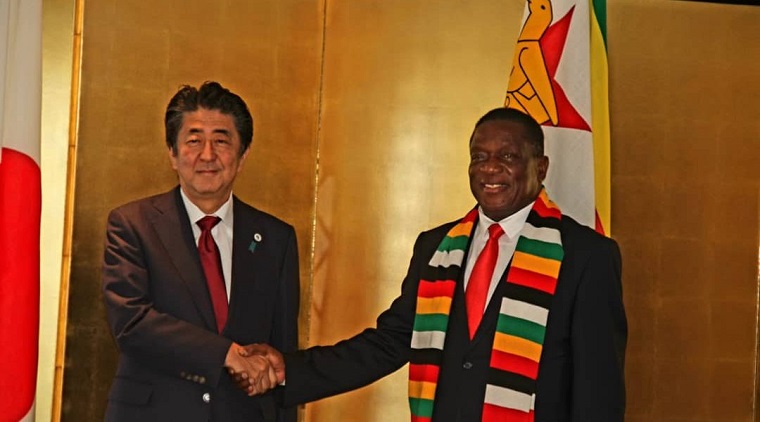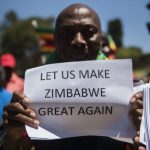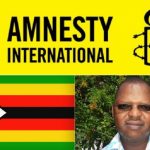 President Emmerson Mnangagwa whose government is currently under siege because of the worsening economic crisis in the country says he is determined to forge ahead despite sanctions imposed on the country by the United States and the European Union.
President Emmerson Mnangagwa whose government is currently under siege because of the worsening economic crisis in the country says he is determined to forge ahead despite sanctions imposed on the country by the United States and the European Union.
He told Japanese journalists during his visit to that country last week that Zimbabwe would not be relying on an international bail-out but on its own resources to modernise its economy.
Already the local currency, which it reintroduced in June, is stabilising as it has held steadily at between 8 to 10 against the United States dollar.
“Currently, our external debt is about US$8 billion. My Finance Minister is discussing with the creditors, some may wish to cancel, others may wish to reschedule,’ he told journalists from Nikkei.
“It’s not us who decide. But that should not be the saviour for Zimbabwe. The saviour for Zimbabwe should be us to say what resources do we have and how we can use those resources to grow our own economy and modernise our own economy.”
Below is the full interview as transcribed by the Sunday Mail.
Question: Zimbabwe is suffering from high inflation and hunger, some say half of the population is living in poverty. How are you solving your problems as a country?
Answer: We must look at the background of Zimbabwe. Since 20 years ago, we had sanctions imposed on us by the West. As a result of that, our economy collapsed, our currency collapsed. In 2009, we embraced a basket of currencies that included the US dollar, the euro, pound, the rand, pula and so on.
Recently, when we had the New Dispensation, which I lead, we decided that despite the sanctions which the West continue to have on us, in particular the Americans under ZDERA, we decided to open our economy and liberalise the economy on all fronts.
Our economy is basically agro-based, mining and tourism. These resources are domestic resources that we have in the country. We are, therefore, focusing on developing and modernising our agriculture to fight the sanctions, as well as to grow our economy on this basis.
To do that, we had to remove the Indigenisation Act, which was one of the constraints in attracting global capital to come into our economy. That, we have now removed.
Q: When did you remove it?
A: We removed it last year in October. We have also further liberalised our mining laws, with respect to diamonds and platinum; other minerals we liberalised soon after I came into office.
We then came up with the engagement and re-engagement policy. Engagement meaning, we are willing and open to engage and work with any member state of the United Nations. Re-engagement means that we would like to re-engage with those countries that had disengaged with us as a result of sanctions. So, we have opened up.
We now have a raft of reforms that are being carried out through Parliamentary systems to do with the ease and cost of doing business, relaxation of various constraints in terms of investment, repatriation of profits from our country and property rights. All that has been liberalised on the economic front.
We also have political and electoral reforms. For the first time, when we had elections last year, we opened up. In the past, the door was closed. We were quite an isolated country, except that we used to relate to Sadc, which is our regional bloc. When we went for elections last year, we opened up and we said we wanted the entire global observers to observe us, those who wanted to.
We had global observers coming to our elections for the first time. We also opened the democratic (space) and for the first time in history, (we had) 55 political parties contesting in our general elections. In the past, we had five or six. And of the 55, 23 contested for the office of the President. So with the political parties, you can see how we have opened up the democratic space in Zimbabwe.
We continue to appeal to the global community to come to Zimbabwe and see the opportunities that we have created.
As a result of the New Dispensation, the EU has relaxed some of the measures it put on Zimbabwe.
To a great extent, there has been dialogue between US and the United Kingdom, which was responsible for persuading the EU to impose sanctions on Zimbabwe.
We are happy that most of the sanctions imposed by the EU are being removed. With Britain, we have now upgraded our engagements to the level of Ministers.
We believe that this positive approach and discussion will continue. There is a new leadership under Mr Boris Johnson and I hope he can continue with the same spirit created by his predecessor.
Continued next page
(217 VIEWS)


